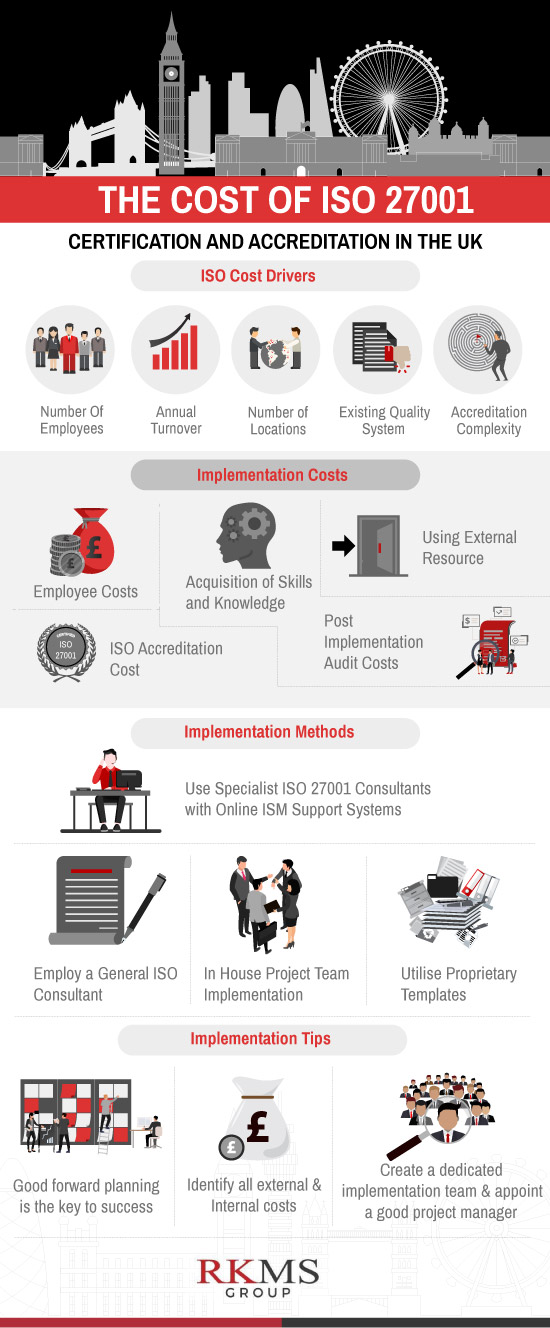How Much Does ISO 27001 Certification Cost in the UK – A Complete Price Guide
When organisations begin exploring ISO 27001 certification cost, they quickly find there’s no fixed price. The ISO 27001 cost depends on many variables: size of business, complexity of operations, number of sites, existing information security maturity, choice of certification body, and whether you choose a UKAS-accredited route or not.
This guide walks you through all the factors that affect the ISO 27001 price, typical cost ranges, hidden fees to watch out for, and how you can manage or reduce your investment while still gaining a certification that’s valued by customers and partners.

What Is ISO 27001 & Why It Matters
ISO/IEC 27001 is an internationally recognised standard for information security management systems (ISMS). Especially in sectors handling sensitive data (finance, healthcare, tech, etc.), it shows that you are committed to managing risks, protecting data, complying with legislation, and building trust.
For more on what ISO 27001 covers, see our detailed page on ISO-27001 Information Security.
Because ISO 27001 is complex and requires systematic risk management, controls, audits, documentation, training, etc., the cost to implement and certify tends to be higher compared with less demanding standards.
But the return in terms of risk reduction, reputational benefit, and possible new business often outweighs the investment.

Typical ISO 27001 Certification Cost Ranges in the UK
Based on recent data, including RKMS’s own figures for 2025, you can expect the ISO 27001 certification cost (implementation + accreditation + audit) to lie somewhere between:
£9,900 and £14,000
This range assumes a mid-sized organisation, with moderate complexity, possibly one or two sites, some documentation already in place, and using a UKAS-accredited certification body.
If your organisation is very small, has only basic needs, or you accept a non-UKAS certification, cost may be lower.
Conversely, for large organisations with multiple locations, complicated IT systems, high risk profile, or existing weak documentation, costs may exceed this range.
Major Factors That Affect ISO 27001 Cost & Price
To understand what will determine your ISO 27001 price, here are key elements:
| Factor | How it affects cost |
|---|---|
| Organisation size (number of employees, locations) | More sites and more employees mean more audits, more documentation, more chances for hidden cost. |
| Intensity & complexity of IT infrastructure | If you have complex networks, legacy systems, cloud-services environment, third-party integrations, etc., more risk assessments, controls, testing etc. are needed. |
| Existing documentation & maturity | Organisations that already have some processes, policies, controls, audits in place tend to spend much less than those starting from scratch. |
| Number of business processes / scope | The broader the scope (e.g. including many departments, services, third-party suppliers), the higher the audit effort and ongoing maintenance. |
| Accreditation choice: UKAS vs non-UKAS | UKAS accreditation adds credibility (important to many customers), but it costs more. Non-UKAS certificates may look cheaper up front, but may not be accepted or trusted by some partners. |
| Consultancy & implementation support | Hiring experienced consultants speeds up the process and reduces internal hidden costs (e.g. employee time diverted, training). However, it adds direct cost. |
| Frequency & duration of audits | Initial certification, surveillance audits, re-certification all come with fees. More frequent surveillance, more complex audits = higher cost. |
| Hidden costs / “opportunity costs” | Time spent by staff, internal training, internal audit preparation, documentation writing, employee disruption are often underestimated. |
UKAS vs Non-UKAS Certification - Price Implications
One of the biggest decisions affecting price is whether to go with a UKAS-accredited certification or a non-UKAS / “professional but non-accredited” certificate.
UKAS accreditation is internationally recognised, trusted by many customers, regulators, and partners. It means the certification body is assessed by UKAS and meets stringent criteria (as part of the IAF network). This adds to cost, via stricter audit requirements, more rigorous processes, and likely higher auditor fees.
Non-UKAS certificates may appear cheaper upfront but risk being less accepted or even rejected by stakeholders who require accredited evidence. Over time the cost (in terms of lost contracts, lower trust, or needing to re-certify with UKAS) can far outweigh the initial savings.
RKMS explains the difference between UKAS and non-UKAS certification, which helps you decide what’s the best balance of cost vs value for your organisation.
Implementation vs Doing It Yourself (‘DIY’ Models)
There are different ways to approach implementation and auditing:
Full consultancy / turnkey support – you hire experts to guide or manage everything: gap assessments, documentation, training, internal audits, risk assessments, etc. This speeds up implementation and tends to reduce hidden costs but has higher direct cost.
Partial support / hybrid models – maybe you do internal work but hire consultants for specific tasks (e.g. risk assessment, internal audit). This splits cost but still benefits from expert input.
DIY / in-house implementation – trying to manage most tasks internally. This can look cheaper on paper, but the hidden costs are often significant: staff time diverted from regular work, risk of errors & delays, needing more training, delays in audit readiness. Often for small organisations with simple operations, or with existing compliance about information security, this may be viable.
RKMS’s own product issosmart™ offers options from “Install Yourself” to “Entire Install” with full support. For organisations with limited budgets, a hybrid or self-install model may be the most cost-efficient.
Example Breakdown of Costs
To make this more concrete, here’s a sample cost breakdown for a mid-sized company (say 50-200 staff, two locations):
| Item | Estimated Cost (£) |
|---|---|
| Gap analysis / readiness review | 1,000 – 3,000 |
| Documentation & policy writing | 2,000 – 4,000 |
| Risk assessment & controls implementation | 2,500 – 5,000 |
| Internal audits & corrective actions | 1,000 – 2,500 |
| Certification audit (UKAS) | 3,000 – 5,000 |
| Surveillance audits (annually) | 1,000 – 2,000 |
| Training of staff / awareness | 500 – 2,000 |
| Hidden / internal labour costs | Highly variable |
Depending on these variables, you may land lower than £10,000 or exceed £15,000+ for larger / more complex organisations.
How To Reduce Your ISO 27001 Certification Cost & Price Wisely
Here are practical tips to optimise your spend while still getting a strong certification:
Ensure scope is clearly defined – narrower scope = fewer departments / fewer processes = lower complexity. But make sure the scope still covers what your stakeholders expect.
Use existing documentation – policies, procedures, controls you already built for other certifications (e.g. data protection, privacy, health & safety) may be reusable.
Train internal champions early** – internal staff with good knowledge of ISO/ISMS can take on much of the heavy lifting.
Choose consultancy wisely – a consultancy with experience in your sector can do work faster, avoid pitfalls, reduce rework.
Plan for audits properly – have your internal audit, management review, corrective actions in place before the certification body comes in; failing audits or repeated corrective actions add cost.
Consider staged implementation – if budget is tight, spread implementation over phases, building incrementally.
Compare quotes from UKAS-accredited bodies – don’t just go with lowest price; check what services are included (audit days, travel, documentation review etc.).
What Kind of Return Can You Expect?
While ISO 27001 price seems like a significant investment, many of the “costs” are also value generators:
Reduced risk of data breaches, fines, and reputational damage.
Greater trust with customers, especially in regulated sectors.
A clearer framework for ongoing information security, which can reduce losses and inefficiencies.
Competitive advantage when bidding for contracts that require ISO 27001 or equivalent.
Often, the payback comes in avoided costs (incidents, non-compliance) rather than direct revenue, but that can still be substantial.
External Standards & References
To understand how accreditation and certification bodies are assessed, you may want to refer directly to:
The International Accreditation Forum (IAF) for standardising accreditation globally.
The ISO (International Organization for Standardization) itself for the standard text of ISO/IEC 27001.
UKAS (United Kingdom Accreditation Service) for what it means to be UKAS-accredited.
These external bodies help set expectations and ensure your certification will be recognised and trusted beyond just seeing a certificate.
Summary
To bring together the main points:
The typical ISO 27001 certification cost in the UK ranges between £9,900-£14,000 for a mid-sized business with moderate complexity.
Your ISO 27001 cost depends heavily on scope, complexity, documentation maturity, consultant- vs DIY-based implementation, and whether you choose UKAS accreditation.
Beware of non-UKAS certificates that appear cheaper but may impose cost elsewhere (acceptance, re-work, lost opportunities).
Hidden costs (employee time, internal audits, documentation writing) often are underestimated.
Use strategies to reduce costs (narrow scope, reuse, smart consultancy, phased implementation) without compromising on value.
If you want tailored advice for your specific organisation, the experts at RKMS offer ISO-27001 consultancy that can help estimate your total cost, assess the right scope, and plan your certification path.
Share
Book a Free Consultation
Get free advice and guidance tailored to your exact business needs
Related Resources
Book a Free Consultation Consultation Consultation Consultation
Get free advice and guidance tailored to your business needs



